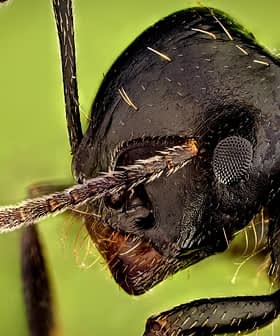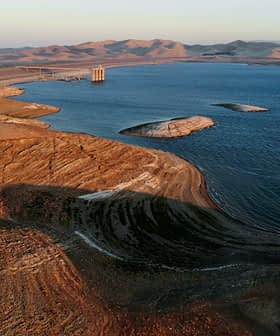Amazon Records Highest Rate of Deforestation in 15 years
Deforestation in the Amazon increased 21 percent from 2020 to 2021 and is more than double what it was a decade ago.
The Amazon rainforest is the largest in the world and a vital part of the global ecosystem.
Known for its lush biodiversity, rainforests play a critical role in weather cycles, moisture regulation and sequestering carbon emissions.
Deforestation continues to dominate our emissions, with an upward trend in the very year in which Brazil should start meeting Paris Climate Agreement targets.
However, large areas of the rainforest are clear-cut every year. According to data from Brazil’s National Institute for Space Research (INPE), there was a 22-percent increase in deforestation rates in the Amazon from 2020 to 2021, the highest rates in the last 15 years.
In the first 10 months of 2021, deforestation in the Amazon rose to 13,200 square kilometers, an area slightly smaller than Montenegro or Connecticut.
See Also:E.U. Moves to Block Deforestation-Derived Imports, Including Some Palm OilNew data from the Greenhouse Gas Emissions Estimates System (SEEG) and the Climate Observatory also show that Brazil generated gross national emissions of 2.16 billion tons of carbon dioxide equivalent. Compared to the 1.97 billion tons in 2019, these numbers have alarmed many climate experts.
The destruction of the Amazon rainforest is estimated to account for the 9.5‑percent increase in greenhouse gases recorded in 2020 by the Climate Observatory and represent the country’s highest level of emissions since 2006.
“Deforestation continues to dominate our emissions, with an upward trend in the very year in which Brazil should start meeting Paris Climate Agreement targets,” said Tasso Azevedo, a climate expert coordinating the SEEG study.
The Paris Climate Agreement, stipulating the need to keep the global temperature rise below 2 ºC, was approved in 2015 and is supported by 200 countries.
The 2019 United Nations Intergovernmental Panel on Climate Change land use report said that protecting and restoring rainforests is “urgent,” a word the organization uses sparingly.
The World Wildlife fund estimates that 17 percent of the Amazon has been destroyed in the past 50 years, mostly due to cattle rancher expansion.
Next year’s projections from INPE predict that deforestation will continue as timber sales soar and illegal logging continues to pose a threat to governmental regulations on cutting.
Despite Brazilian President Jair Bolsonaro’s attempts to downplay the reality of the destruction, the damage is not hard to see. Images from NASA’s Aqua satellite demonstrate the steady loss of forests from 2010.
Bolsonaro took office in 2019 and has prioritized the economy over the environment. He says that deforestation claims are overblown and assured that 90 percent of the Amazon is still preserved.
Some activists worry that Bolsonaro and his allies may solve the political headaches generated by illegal deforestation by legalizing it.
“If all deforestation is legal, then you have zeroed illegal deforestation quite successfully,” said Suely Araújo, a senior public policy specialist at Observatório do Clima, a civil society coalition focused on climate change.
Bolsonaro has also consistently claimed that the Amazon belongs to Brazil, ignoring the various sections that belong to indigenous people who have lived in the Amazon for time immemorial.
He denies any threat to the indigenous population of more than 800,000 and the 450 associated territories across Brazil. When questioned at the United Nations General Assembly, Bolsonaro dismissed allegations of damage and bashed what he called “sensational reporting.”
“Using and resorting to these fallacies, certain countries, instead of helping… behaved in a disrespectful manner and with a colonialist spirit,” he said. “They even called into question that which we hold as a most sacred value – our sovereignty.”
Despite the lack of urgency with which Bolsonaro has addressed the issue, climate activists received some hope from the conclusion of the COP26 climate summit in November 2021.
The world’s forests were at the forefront of global discussion, with delegates from 133 countries signing an agreement to reverse deforestation by 2030. Brazil’s delegate was among the representatives to commit to global forest restoration.
More hope for opponents of the Brazilian president may be coming in October 2022. Former president Luiz Inácio Lula da Silva is rumored to formally announce a presidential run in March, with one recent poll giving him a 27-point advantage over the incumbent.
Lula governed Brazil from 2003 through 2010. Under his government, deforestation in the Amazon rainforest fell substantially. Among Lula’s current campaign planks is to re-establish Brazil as a leading voice on environmental issues.
“Together with the European Union, we [South America] could form an economic bloc, a bloc with similar political positions, with similar environmental views, to face up to the two giants… the United States and China,” he said at a recent rally.








